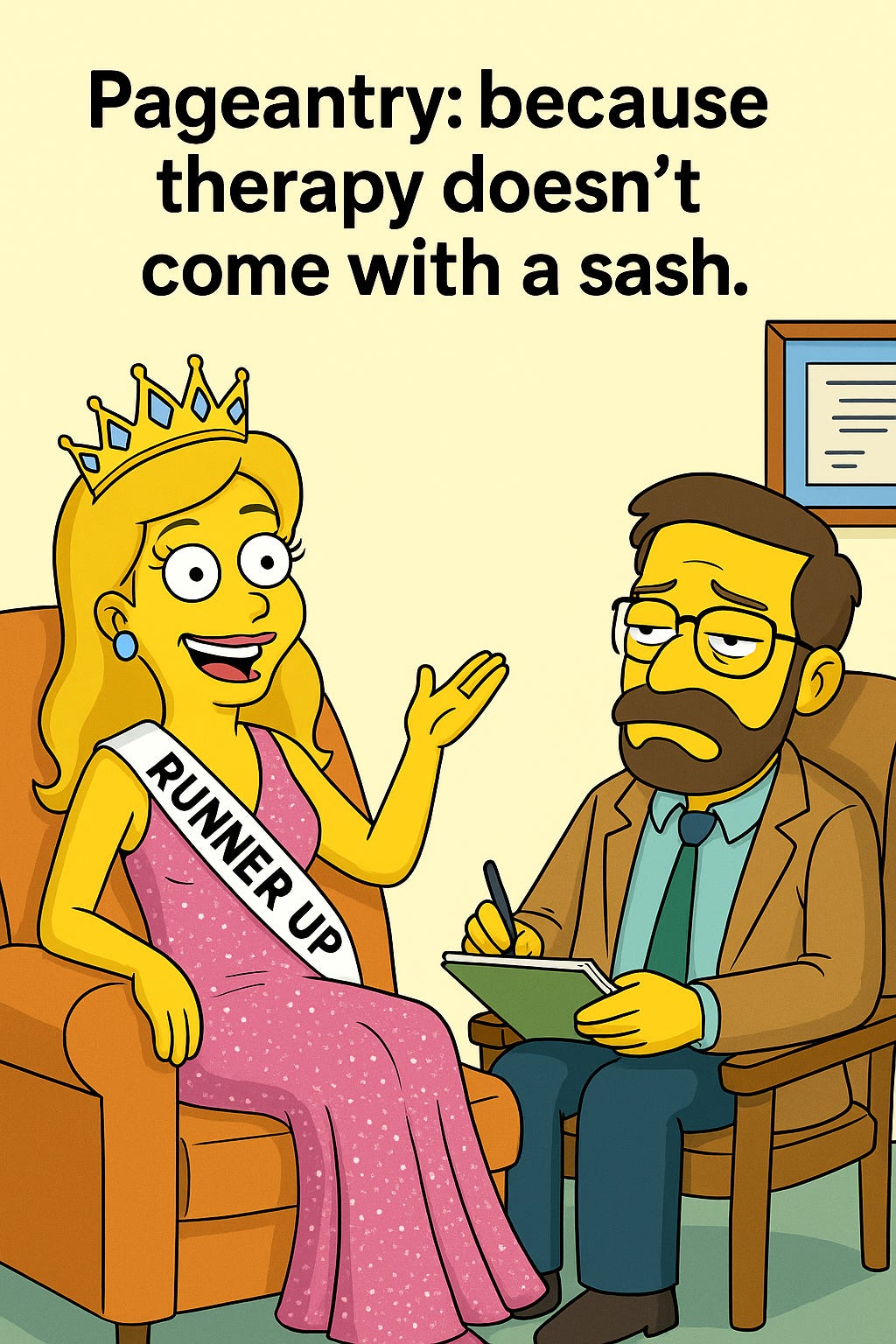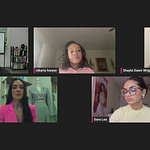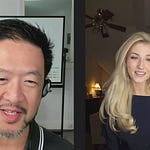Each week, I share no-fluff pageant coaching to help you lead, speak, and leave a legacy. With 300+ interviews and coaching across Miss Universe, Miss USA, and Miss America, this isn’t theory—it’s what works. Free subs get tips, interviews, and ad-free access. Paid subs unlock mini-courses, priority Q&As, and direct support.
Timestamps
1:36 Psychology behind interview answers
4:40 Addressing judges effectively
7:58 Structuring talking points
11:00 Handling unexpected feedback
14:07 Practicing under real conditions
17:15 Staying composed under pressure
20:30 Capturing strong phrasing
23:31 Reflective questions for better answers
When Every Word Counts
I still remember one of the very first interviews I did for The Pageant Project. I asked a contestant a simple question, and she gave me an answer that could've doubled as the next War and Peace. Now, don't get me wrong — I love a good story. But when you're fifteen minutes into a monologue and still haven’t gotten to the main point, it starts to feel like being trapped in a never-ending elevator pitch.
That was the moment I realized: being able to compress your answers — to say more with less — isn’t just a nice-to-have skill. It’s absolutely critical. Especially in pageantry, where every second of your interview counts, and you’re often fighting nerves, time limits, and a thousand swirling thoughts all at once.
The Danger of Rambling (And How It Kills Connection)
Here's the thing most people don't realize: rambling doesn’t make you sound smart — it makes you sound lost. When you go on and on, what you’re actually communicating (whether you mean to or not) is that you’re not confident in your answer. You’re not sure what your main point is. Or worse: you’re hoping to say something good if you just keep talking long enough.
I see this all the time with contestants who are passionate, talented, and full of amazing stories — but they lose their audience because they don’t know when to land the plane.
In an interview, your job is to make the judge’s life easier. Help them see you clearly. Draw a straight line from the question to the heart of your answer. If they have to dig through three minutes of context just to find the point, you’ve already lost them.
Compressing your answer doesn’t mean cutting out the soul. It means sharpening your message so the soul shines even brighter.
How to Start Compressing Your Answers (Without Sounding Like a Robot)
So, how do you actually start compressing your answers? Here’s what’s worked not just for me, but for countless contestants I’ve coached:
Answer the Question First. Seriously. Before you give any background, just answer the damn question. If they ask, "What is your greatest strength?", the first words out of your mouth should be something like, "My greatest strength is resilience." Not a three-minute backstory about your childhood pet hamster.
Think Headline, Then Details. Imagine your answer like a news article: headline first, supporting details after. The headline grabs attention; the details provide color.
Use the 30-Second Rule. Aim to answer any question in about 30 seconds initially. If the interviewer wants more, they’ll ask. It’s much easier to expand than it is to claw back a long-winded answer.
Practice Brevity With Passion. Being brief doesn’t mean being cold. You can still be vibrant, warm, funny — just more focused. Think of it like a powerful shot of espresso instead of a watery bucket of coffee.
Real Talk: It's Harder Than It Looks
I’m not gonna lie — compressing your answers is way harder than it sounds. When you care deeply about something, it’s natural to want to give every piece of context, every life lesson you’ve learned, every heartfelt reason behind your choice.
But mastery comes from restraint. The people who can articulate a complex experience with clarity and brevity are the ones who stand out. They’re the ones who make judges think, "Wow, she really knows herself."
And you can bet your sparkly pageant heels that they didn't get there overnight. It takes practice. It takes stumbling over your words, realizing you’re rambling, feeling that sinking "oh no" moment, and then learning how to catch yourself and do better next time.
Trust me — every great speaker, every amazing interviewee, every titleholder you admire has had those awkward, cringey learning moments behind the scenes. No one is born a master of compression.
Final Thoughts: Say Less, Mean More
At the end of the day, the goal isn’t just to say less. The goal is to mean more with every word you speak.
When you compress your answers, you create space for the real you to come through — not buried under ten layers of explanation, but shining clearly and confidently.
And isn’t that what pageantry (and life) is really about? Showing up as your most brilliant, distilled self — no fluff, no filler, just pure, powerful you.
If you take nothing else away from today, take this: when in doubt, keep it simple, keep it real, and keep it you.
If you’re ready to go deeper, consider becoming a paid subscriber. You’ll get access to mini-courses on everything from interviews to sponsorship, priority answers to your questions, and the chance to ask me anything directly in the comments.
If you're looking for personalised coaching, I offer a limited number of private sessions. It’s for women who want tailored strategy, mindset support, and real accountability—on stage and beyond.
Pageantry is evolving—and you deserve coaching that’s more than surface-level. Join us if you're ready to go beyond the crown.











